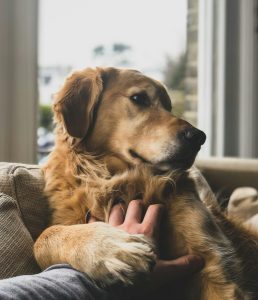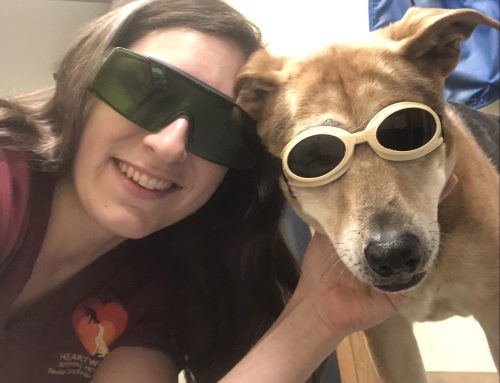As our beloved canine companions age, they may face health challenges that require our understanding and support. One such condition that can affect senior dogs is Canine Cognitive Dysfunction (CCD), often referred to as doggy dementia. Just like in humans, CCD can impact a dog’s cognitive functions and behavior, leading to changes that may be concerning for pet owners.
Recognizing the Signs
Identifying CCD in dogs can be tricky because the symptoms can develop gradually and may resemble normal aging behaviors. Here are some signs that could indicate your dog might be experiencing CCD:
1. Disorientation: Your dog may seem confused in familiar surroundings or may get lost in the house or yard.
2. Changes in Sleep Patterns: Dogs with CCD may sleep more during the day and be restless or disoriented at night.
3. Accidents in the House: Even well-trained dogs may start having accidents indoors, forgetting their housebreaking training.
4. Altered Interaction: A once social and friendly dog might become withdrawn or show less interest in family members or other pets.
5. Pacing or Repetitive Behaviors: Some dogs with CCD may exhibit pacing, wandering in circles, or repeatedly walking into corners.
6. Increased Anxiety: Anxiety or clinginess can develop in dogs with CCD, especially when separated from their owners.
Seeking Veterinary Care
If you notice any of these signs, it’s crucial to consult with your veterinarian at Heartwood Animal Hospital in Youngsville, NC. They can perform a thorough examination to rule out other medical conditions that may mimic CCD, such as arthritis or vision/hearing loss. Once other conditions are ruled out, your vet can help you develop a management plan tailored to your dog’s specific needs.

Supporting Your Senior Dog
While CCD is not curable, there are steps you can take to support your dog’s quality of life:- Routine: Establishing a consistent daily routine can help reduce confusion and anxiety.
– Environmental Enrichment: Provide mental stimulation with interactive toys or activities that engage your dog’s senses.
– Diet and Exercise: Maintaining a healthy diet and regular exercise routine appropriate for your dog’s age and condition is essential.
– Medication and Supplements: In some cases, your vet may recommend medications or supplements that can help manage symptoms and slow down the progression of CCD.
Compassionate Care at Heartwood Animal Hospital
At Heartwood Animal Hospital, we understand the importance of your pet’s well-being throughout their life stages. Our team is dedicated to providing compassionate care and guidance for pet owners facing the challenges of CCD or any other health concerns. Whether it’s a routine check-up or managing a chronic condition like CCD, you can trust us to be your partner in ensuring your dog’s health and happiness.
If you suspect your dog may be showing signs of CCD, don’t hesitate to reach out to us. Early detection and intervention can make a significant difference in managing the condition and improving your dog’s quality of life. Together, we can ensure your senior dog continues to enjoy their golden years with comfort and dignity.
At Heartwood Animal Hospital, we’re here to support you and your pet every step of the way.
Address: 3091 Mays Crossroad Road, Youngsville, NC
Phone: 919-570-9311
Website: heartwoodanimalhospital.com
*Blog post by Heartwood Animal Hospital, Youngsville, NC. Date: July 9, 2024.*





Leave A Comment